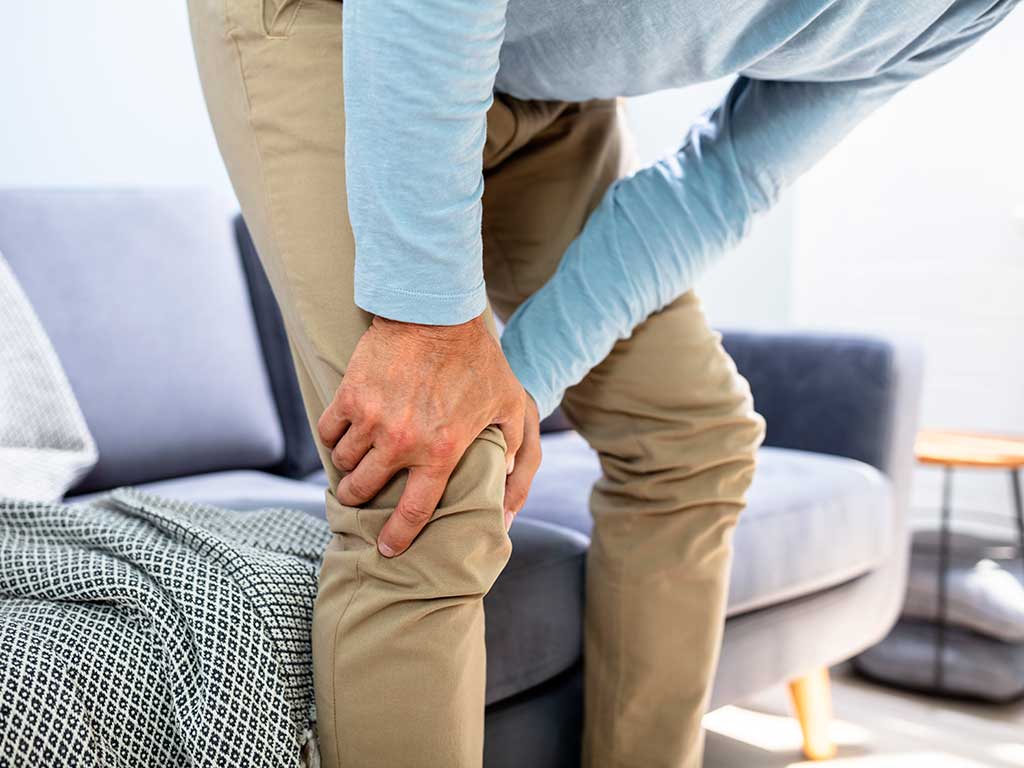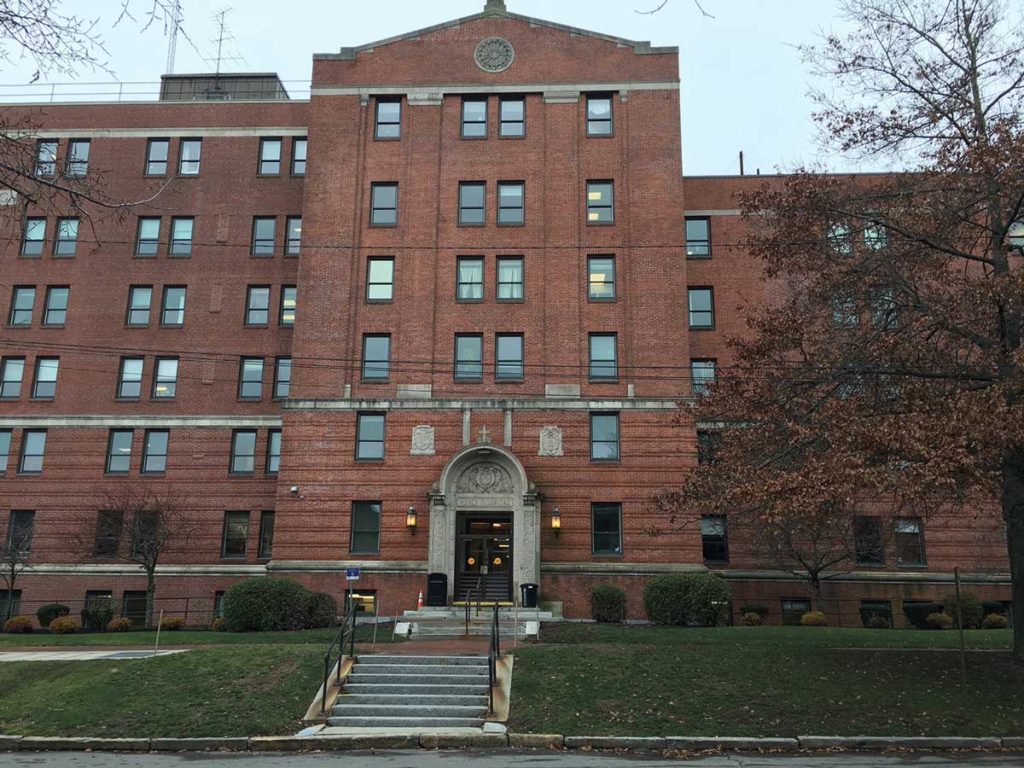By Bruce Gomberg, MD FAAOS and Stephen Rodrigue, MD FAAOS

Osteoarthritis, which is the most common form of arthritis, impacts over 25 million people in the United States each year. It is a chronic disease that impacts the joint surface with varying degrees of severity. It typically affects people over the age of 50, but it may be seen in younger people as well.
Commonly known as “wear and tear” arthritis, osteoarthritis results in the cartilage on the ends of bones wearing away. These cartilage surfaces are normally extremely smooth and result in pain-free joint motion. As the surfaces degenerate, the joint becomes inflamed and motion may become rough, causing pain and stiffness.
Symptoms of osteoarthritis of the knee
Typical symptoms of knee osteoarthritis are pain and swelling. Since the pain is activity-related, it becomes worse with increased motion. Movements that cause arthritic knee pain include walking, squatting, twisting, using stairs, and transitioning from a seated to standing position. The knee joint may even lock or get stuck during certain movements. It may also begin to make a grinding noise due to the roughness of the joint surfaces. Some people report that their knee buckles and many report increased pain with weather changes.

The diagnosis of knee osteoarthritis is made by a qualified medical provider doing an examination of the knee joint along with x-rays. X-rays will demonstrate deterioration of the knee joint by showing narrowing of the cartilage space and changes in the bones, including spurs.
While osteoarthritis can’t be reversed, treatments can reduce pain and help you move better.
Non-surgical treatments
If you are diagnosed with osteoarthritis of the knee, there are several modes of treatment you can choose to help you with the pain. Several are non-surgical and non-invasive. Initially, these include activity modification, like limiting high-impact activities and weight loss. Others include taking medicine like acetaminophen (Tylenol) or an anti-inflammatory medicine like ibuprofen (Motrin). Of course, you must discuss taking any additional medicine with your doctor, as there are always adverse effects and interactions with other medicines that a professional will need to monitor.
Other treatments include physical therapy, which is often good for flexibility and stabilization of the knee. Other modes of non-surgical treatment include injections. While these are often helpful, their benefit is almost always time-limited. There are many different types of injections, which you should discuss with your doctor or health care provider.
Surgical treatments
If non-surgical treatment is not effective and you continue to have pain with activities of daily living, you may want to talk with your doctor about surgery. For advanced knee osteoarthritis that does not respond to medicine or injections, knee replacement is often very helpful. While all surgical procedures carry risks, knee replacement surgery has become extremely common with a low risk of complications.
Knee replacement includes removing the damaged cartilage and bone of the joint surface and positioning new metal or plastic surfaces to restore knee function. Projections are that over a million knee replacements were performed in 2020 in the United States alone.
After knee replacement surgery, there is a period of healing that requires physical therapy, pain and swelling control, and home exercises. Often, patients are comfortable several weeks after surgery and gains are made over the entire next year. Knee replacement surgery now has a very strong track record of pain relief, having been performed and refined over 40 years. Patients can reliably expect to return to most activities without pain after a successful knee replacement.
Just as every person and every situation is different, so too can be the proper treatment. But if knee pain becomes a pattern and impacts your life, it’s time to seek advice. If you or someone you know may be experiencing symptoms of osteoarthritis, a primary care provider could help you weigh options tailored to your specific needs.
Drs. Gomberg and Rodrigue are board-certified joint replacement experts who are Diplomates of the American Association of Hip & Knee Surgeons. They practice at Northern Light Mercy Orthopedics, which is located at 20 Northbrook Drive in Falmouth.
Content Provided by

Northern Light Mercy Hospital, a nonprofit community hospital sponsored by the Sisters of Mercy, has been providing care to greater Portland since 1918. Mercy consistently receives an ‘A’ grade by The Leapfrog Group for meeting the highest safety standards in the country. It has also been recognized as a top hospital by Newsweek and U.S. News and World Report.
View more health and wellness content provided to the community by Northern Light Mercy Hospital here.


